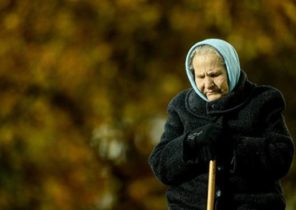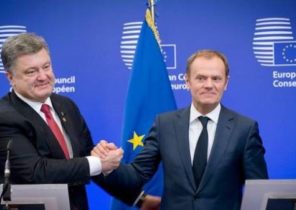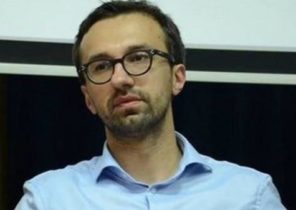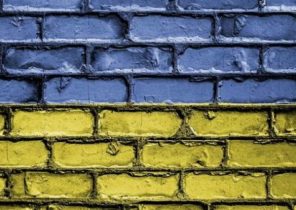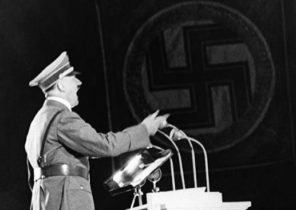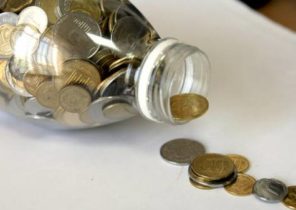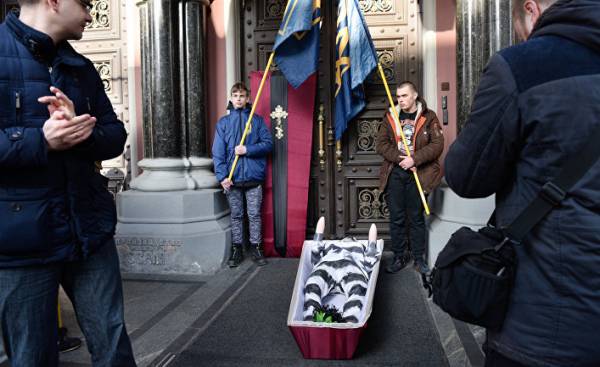
Attacks on art exhibitions and literary events, the ruin of provincial administrations, demonstration against gay-parade in Kiev on June 18… reminiscent of the ruins of the Ukrainian political system ultranationalists rely on all new high-profile events like the may attempt to achieve closure of the Lebanese capital’s cafes, where the waiters do not speak Ukrainian. In recent months, such actions put forward in the first information unit plan, which accustomed to work without drawing attention to itself.
Anyway, their goal is not only need to flaunt your radical attitude. Ultranationalists for many years was content with just noisy torchlight procession, but now I intend to have a serious impact on the future of the country, which is derived from the balance after three years of war. In the spring the members of the new far-right party “national housing” organized a blockade of several Russian banks in the Ukraine, forcing the resulting savings Bank (most of them) to sell its subsidiary in the country. This blockade resulted in clashes with police in several cities, however, forced the government to concede: in mid-March, the President signed a decree prohibition for the representative offices of Russian banks to transfer income in Russia.
Manifesto
This victory over “associated with the Russian government by the oligarchy,” as the representative of the management of the “National body” Alexander Alferov, was not the only one. Winter received the support of right-wing veterans groups staged a blockade of the railway lines, which connect Ukraine with the occupied territory of the separatist Donbass. In this case, simple slogans (“No trade of blood”) was stronger than the power: first Kiev tried to oppose the motion, but ultimately made the embargo official. The cessation of trade with the Donbass and, in particular, loss of access to cheap coal can get Ukraine to 1% of GDP. In addition, it further strengthened its rift with the breakaway regions.
In the Wake of this the dynamics of extreme-right parties are actively engaged in self-organization. In mid-March it was announced about signing of the Manifesto (in the spirit of an electoral Alliance) three main representatives of this trend: the oldest nationalist party “Svoboda” (she has five deputies in the Parliament), the growing power of the “National body” (about 10 thousand supporters) and the paramilitary “Right sector” (an extremist organization banned in Russia — approx. ed.), which constitutes the main purpose of Russian propaganda, however, is losing its pace.
20 points of the Manifesto paint a mixed picture: the removal of the President Poroshenko, the formation of the Baltic-black sea Union (allows you to approve both anti-Russian and anti-European line of these movements), the return of Ukraine’s nuclear status, permission to bear arms by citizens, the severance of diplomatic relations with Russia…
These measures represent the least common denominator of all of these rather disparate movements. “Now the merging parties have significant ideological differences, says a Jerusalem expert Vyacheslav Likhachev. — “Freedom” — a classic nationalist party, and “national building” — even more radical and racist than the “Right sector””.
So what is in common between the leader of the “National body”, a known neo-Nazi Andriy Biletsky from the “Right sector”, which includes among its members Jews?
“We have some differences, but we share a common enemy, Russia,” — said the historic leader of the “Freedom” Oleg Tyagnibok.
References to the war can be traced in the Manifesto of parties, which are preferable to the forceful resolution of the conflict. Battles have strengthened the legitimacy of the far right, in the ranks of which there are many former soldiers. Thus, the “national body” was formed on the basis of the battalion “Azov”, which is famous logo in the style of the SS division “Das Reich”, as well as accusations of war crimes.
Resistance to violence
The war changed not only shape Ukrainian identity, but the traditional canons of Ukrainian nationalism, moving it beyond the ethnic-folk niche in the Ukrainian-speaking West of the country.
“National corpus” was born in Kharkiv, that is, in the center of the country, while the “Right sector” is popular among Russian-speaking population. In addition, the ultra active fixed: in some localities their activists substitute for the police in the small settlement of household conflicts. “National body” even specializiruetsya on the organization of youth camps.
After the revolution on the Maidan in 2014, when the nationalist party first declared itself, they were able to achieve only microscopic results of the election. Today, according to polls, in the elections of 2019 they are willing to support a little more than 5%.
Their slogans don’t get the big response among the population, “which is susceptible to populism, but against extremist and hateful rhetoric,” — said the expert on the far right Anton Shekhovtsov. “The war gave legitimacy to radical rhetoric, but the society shows stubborn resistance to the violence — says Vyacheslav Likhachev. — In 2014, racism and anti-Semitism is becoming less”.
This relative failure is explained by the fact that the government dragged on the part of the nationalist rhetoric. Elected in 2014, “President of peace” Poroshenko categorically against any concessions to Russia. In addition, it offers satisfy right-wing view of history with the glorification of nationalists, including those who fought on the side of Nazi Germany against the Soviet Union.
Anyway, concerns about the far right do not relate to elections only. “If the situation in the economy will continue to worsen, the nationalists may try to destabilize the government by violence,” — said a senior representative of the intelligence services. All of this exacerbates two issues: the movement of the arms from the front and the possibility of an Alliance with right-wing groups, the veterans of the conflict who do not hold a clear ideology, but are willing to take radical action.
“The overthrow of the current regime is not a priority for us, — says Oleg Tyagnibok. We — the parliamentary game, but if you do not talk about the revolution, the government becomes arrogant”.
“Destabilization of the state on the side of Russia”, — adds Alexander Alferov from “the National body”, despite the words of the leader of the party in October 2016 “We want to come to power through elections, but we do have other means.”
In fact, the nationalists are too weak to achieve something when you finally earned combination unit of the security forces. Now the situation is not the same that in the summer of 2015, when the protests against the constitutional reform turned the death of three police officers at the Parliament building.
Hidden connections
All of this is layered fog surrounding the true intentions of the leaders of the far right and their hidden relationships. In a tangle of questionable practices of Ukrainian politicians, radical groups have always been used by political and economic forces as instruments of pressure and influence. For example, the battalion “Azov” has long financed businessman Sergey Taruta and the Dnipropetrovsk oligarch Igor Kolomoisky.
According to sources, the national corpus liaises with the Minister of internal Affairs Arsen Avakov, who was appointed one of the members of the party for the post of chief of the national police.
“The Russian factor” also mixes all the cards. From 1940-1950 years, Moscow has consistently introduced his people to nationalist groups. Today, all serve the needs of the Kremlin propaganda that claims Ukraine is in the hands of neo-Nazis, and also increases the risk of destabilization. So, “Freedom” for a long time was financed by the Party of regions of former President Viktor Yanukovych, a vassal of Moscow. In 2014 it became clear that at least four members of far-right groups have ties with Russian intelligence services.

